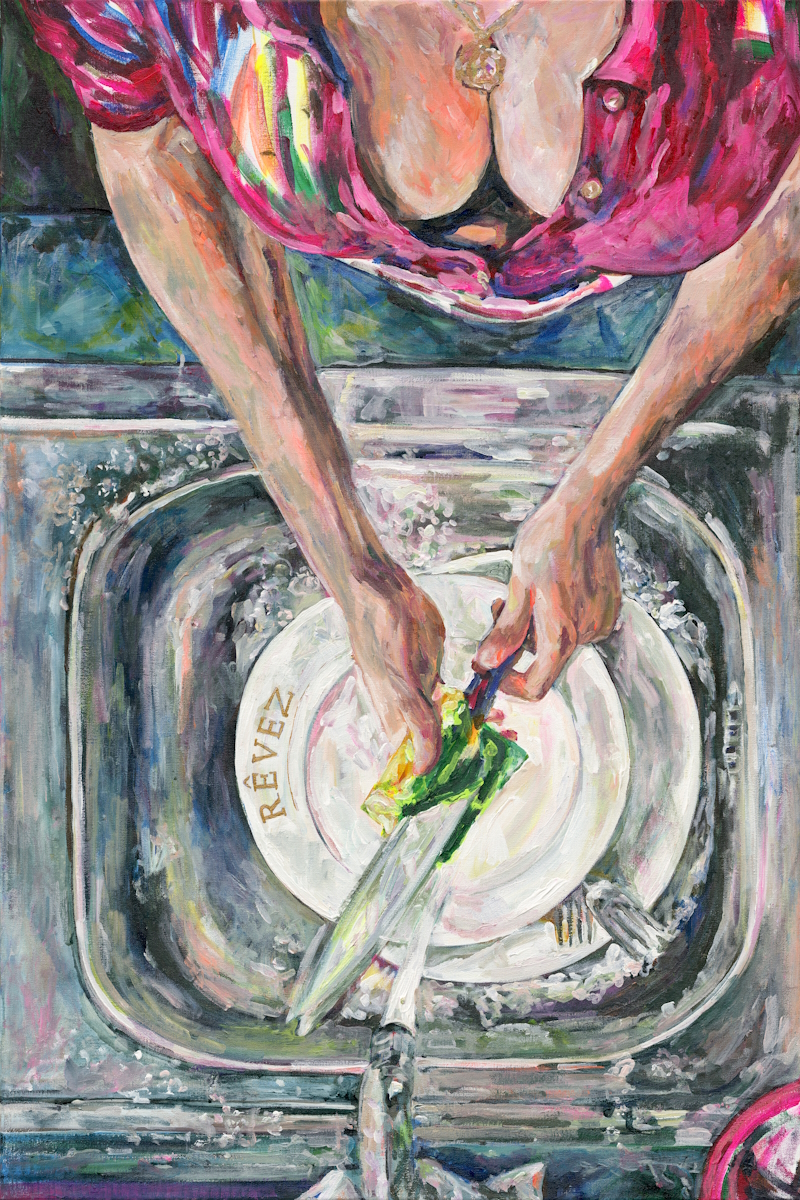

Part of the _ Series SHE _
A series consisting of 24 works with _ SHE _ in the leading role. For years the works lived under my skin and in my head. I captured them one by one, by trial and error, with brushes, paint and paper. They are both the supreme happiness and the deepest sadness in me.
But all with one mission: _ HOPE _
Hope to be picked up, cherished and loved... within their vulnerability, their strengths and their layers.
That is why I started from poetry and extended this epic into the titles. Within my _ series SHE _ I aim to translate feminine energy plastically. Energy that is universal, not even gendered. Men also carry this feminine energy, this poetry within them. Herein lies the ultimate recipe for a better world, herein lies my hope. Women themselves cannot escape the dance, we must learn to connect this energy instead of squeezing it shut because of jealousy, envy, or pedantry.
In this series the woman is not so much the central focus, but rather the model. As the connector. The connector that spreads its energy around and stitches together what is still loose. In this way I look to open up the image by putting as few faces in the picture as possible. By letting them speak from that plastically translated message.